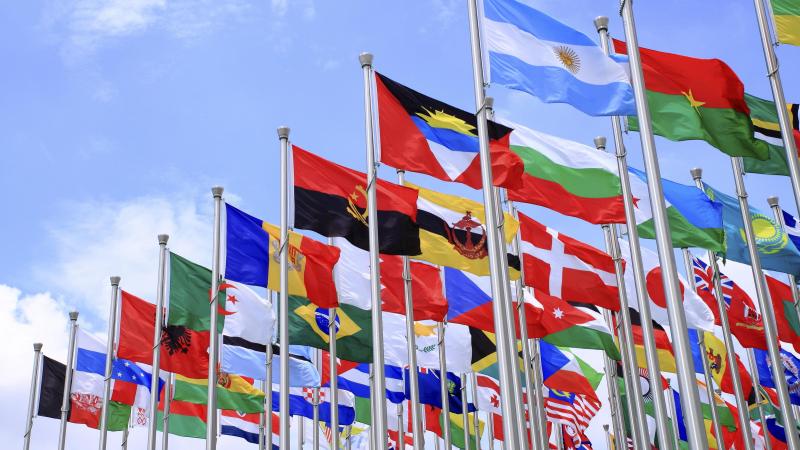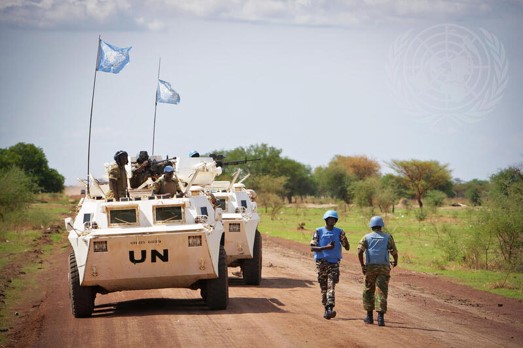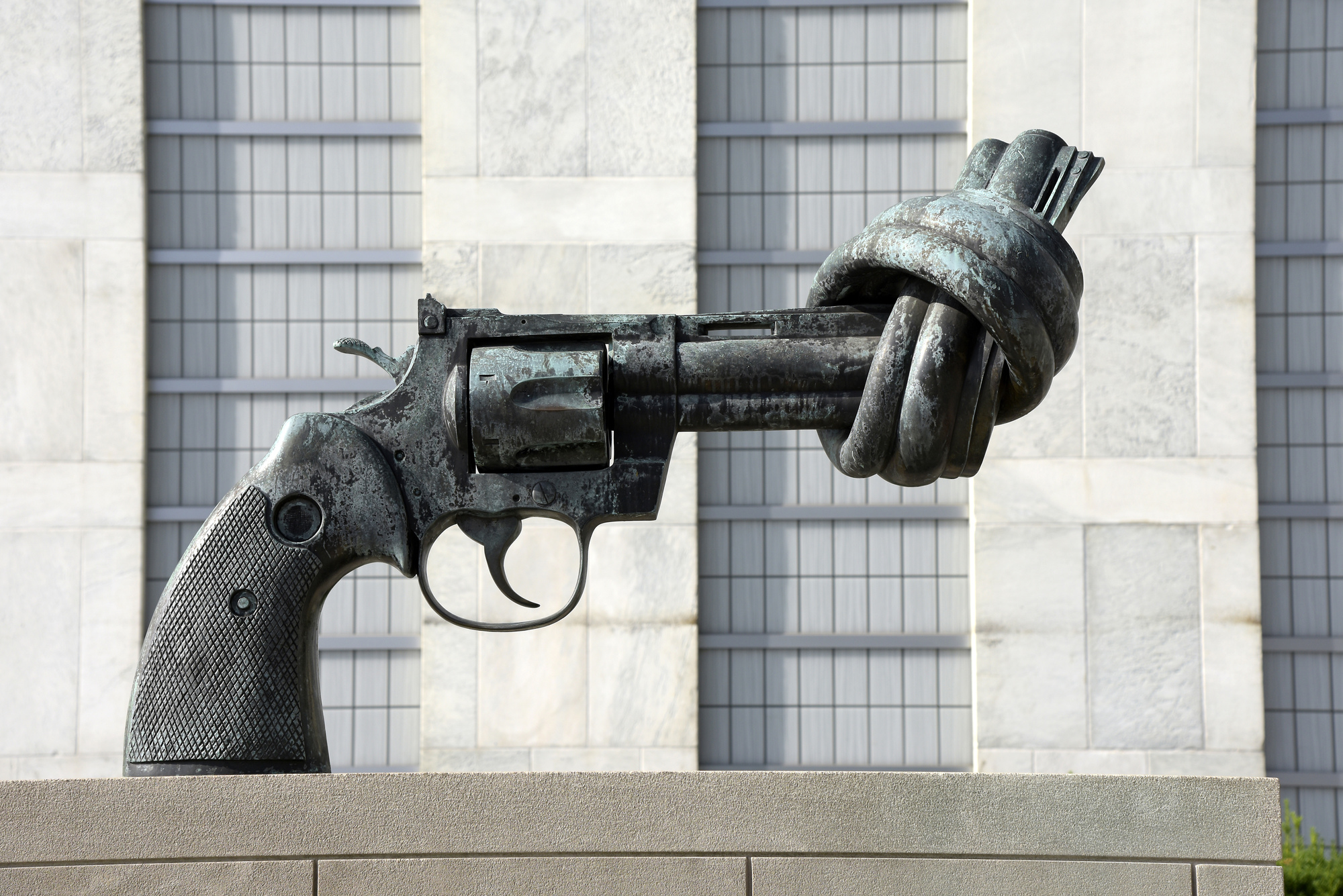In an increasingly polarized world, where geopolitical tensions and economic rivalries simmer beneath the surface, the threat of a global conflict is ever-present. However, history has shown that war is not inevitable; it is often the result of failed diplomacy, inadequate dialogue, and shortsighted policies. In this context, adopting and implementing comprehensive strategies to mitigate the risk of escalating into a world war is crucial. Here, we delve deeper into the essential strategies that can help prevent another catastrophic global conflict.
1. Strengthening International Institutions
International institutions such as the United Nations (UN), the European Union (EU), and the African Union (AU) play a critical role in maintaining global peace and security. These organizations provide platforms for dialogue, conflict resolution, and cooperative action. However, their effectiveness is often hampered by bureaucratic inefficiencies and political divisions among member states.
To strengthen these institutions, comprehensive reforms are necessary. This includes enhancing the representation of all member states to ensure a more inclusive and democratic decision-making process. For instance, expanding the permanent membership of the UN Security Council to include countries from underrepresented regions can provide a more balanced perspective on global issues. Additionally, increasing the funding and resources available to these institutions can enhance their capacity to mediate disputes and deploy peacekeeping missions effectively.

Regional bodies also play a vital role in conflict prevention and resolution. The EU, for example, has successfully used its economic and political leverage to promote stability in the Balkans. Similarly, the AU has been instrumental in addressing conflicts in Africa through initiatives like the African Peace and Security Architecture (APSA). By supporting and empowering these regional organizations, the international community can foster a more coordinated and effective response to emerging threats.
2. Enhancing Diplomatic Engagement
Diplomacy remains the cornerstone of international relations and peacebuilding. In an era where military posturing often overshadows diplomatic efforts, it is imperative to prioritize and enhance diplomatic engagement. Continuous dialogue, even with adversaries, can prevent misunderstandings and build trust.
Track II diplomacy, which involves unofficial dialogues between non-governmental actors such as academics, business leaders, and civil society organizations, can complement official diplomatic efforts. These informal channels provide opportunities for candid discussions and innovative solutions that may not be possible in formal settings. Additionally, establishing direct communication channels, such as hotlines between rival states, can help manage crises in real-time and prevent escalation.
Investing in diplomatic training and capacity-building is also crucial. Diplomats must be equipped with the skills and knowledge to navigate complex international issues and negotiate effectively. Enhanced collaboration between foreign ministries, think-tanks, and academic institutions can facilitate the exchange of best practices and innovative approaches to diplomacy.
3. Promoting Economic Interdependence
Economic interdependence is a powerful deterrent against war. When nations are economically intertwined, the cost of conflict becomes prohibitively high. Trade agreements, joint ventures, and regional economic integration can create a web of mutual interests that discourage aggression.
The European Coal and Steel Community (ECSC), established in the aftermath of World War II, is a prime example of how economic cooperation can foster lasting peace. By pooling coal and steel resources, the ECSC made war between its member states, particularly France and Germany, economically unviable. This initiative laid the foundation for the European Union, which has significantly contributed to peace and stability in Europe.
Today, similar initiatives can be pursued in other regions. The African Continental Free Trade Area (AfCFTA) aims to create a single market for goods and services across Africa, promoting economic integration and reducing the likelihood of conflicts. By encouraging cross-border trade and investment, such initiatives can foster interdependence and create a shared interest in maintaining peace.
4. Investing in Conflict Prevention and Early Warning Systems
Preventing conflict requires proactive measures, including robust conflict prevention and early warning systems. These systems, powered by advancements in artificial intelligence and big data analytics, can identify potential flashpoints by monitoring various indicators such as troop movements, inflammatory rhetoric in state media, and social unrest.
For instance, the United Nations’ Conflict Prevention and Early Warning Systems (CPEWS) leverage satellite imagery, social media analysis, and on-the-ground reports to monitor potential conflicts. By providing timely information, these systems enable international bodies and governments to take preemptive actions, such as deploying peacekeeping forces or mediators to defuse tensions.

Additionally, fostering resilience in fragile states through development aid and capacity-building is crucial. Addressing the root causes of conflict, such as poverty, inequality, and governance deficits, can mitigate the risk of escalation. International cooperation in supporting sustainable development, good governance, and human rights can create a more stable and peaceful global environment.
5. Arms Control and Disarmament
The proliferation of advanced weaponry increases the risk of war. Comprehensive arms control agreements and disarmament initiatives are essential in reducing this threat. Reviving and strengthening treaties such as the Intermediate-Range Nuclear Forces (INF) Treaty, the Strategic Arms Reduction Treaty (START), and the Treaty on the Non-Proliferation of Nuclear Weapons (NPT) can help limit the arms race.
Negotiating new agreements tailored to emerging technologies, such as autonomous weapons systems and cyber capabilities, is equally important. Transparency measures, such as mutual inspections and data sharing, build trust and verify compliance. The Open Skies Treaty, which allows unarmed aerial surveillance flights over member countries, is an example of how transparency can enhance security.

International cooperation in regulating the trade and proliferation of conventional weapons is also critical. The Arms Trade Treaty (ATT) aims to prevent and eradicate the illicit trade in conventional arms, which fuels conflicts and human rights abuses. By strengthening the implementation and enforcement of such treaties, the international community can reduce the availability of weapons that contribute to conflict.
6. Addressing Non-Traditional Security Threats
Today’s security landscape includes non-traditional threats like climate change, pandemics, and cyberattacks. These challenges can exacerbate geopolitical tensions and fuel conflict. International cooperation in addressing these threats is crucial to maintaining global peace.
Climate change poses significant risks to global security, including resource scarcity, forced migration, and increased competition for water and arable land. Joint efforts to combat climate change, such as the Paris Agreement, can mitigate these risks. By reducing greenhouse gas emissions, investing in renewable energy, and enhancing climate resilience, nations can address one of the most pressing security threats of our time.
Global health security is another critical area for cooperation. The COVID-19 pandemic highlighted the interconnectedness of our world and the need for collective action to address health crises. Strengthening global health systems, enhancing pandemic preparedness, and ensuring equitable access to vaccines and treatments can prevent health emergencies from escalating into geopolitical conflicts.
Cybersecurity is an emerging challenge that requires international cooperation. Cyberattacks can disrupt critical infrastructure, steal sensitive information, and undermine trust between nations. Collaborative efforts to establish norms and regulations for cyberspace, such as the UN’s Group of Governmental Experts on Advancing Responsible State Behavior in Cyberspace, can enhance global cyber resilience and prevent cyber conflicts.
7. Fostering a Culture of Peace
Building a culture of peace requires long-term investment in education, media, and civil society. Educational curricula should emphasize conflict resolution, empathy, and global citizenship. Teaching young people about the importance of peace, tolerance, and mutual respect can create a generation that values dialogue over conflict.
Media outlets have a responsibility to promote balanced reporting and counteract divisive narratives. In an age of misinformation and propaganda, responsible journalism can provide accurate information and foster understanding. Initiatives like the Peace Journalism approach, which aims to report on conflicts in a way that encourages non-violent responses, can contribute to a more peaceful world.
Civil society organizations play a vital role in facilitating dialogue and reconciliation at the grassroots level. Community-based peacebuilding initiatives, interfaith dialogues, and cross-cultural exchanges can bridge divides within and between nations. By empowering civil society and supporting grassroots efforts, the international community can build a foundation for sustainable peace.
Conclusion
The path to peace is arduous but achievable. By strengthening international institutions, enhancing diplomatic engagement, promoting economic interdependence, investing in conflict prevention, controlling arms, addressing non-traditional threats, and fostering a culture of peace, the international community can mitigate the risk of escalating into a world war.
The stakes are too high to ignore these strategies; our collective future depends on their successful implementation. As history watches, let it record our generation as the one that chose dialogue over destruction, cooperation over conflict, and peace over war. Through concerted efforts and unwavering commitment to peace, we can build a safer, more harmonious world for future generations.


